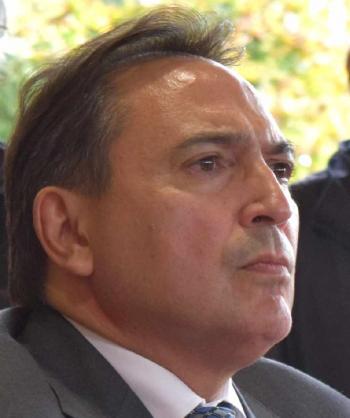Image Caption
By Shari Narine
Windspeaker Contributor
OTTAWA
The federal government’s commitment of $8.4 billion in its first budget is a huge accomplishment, said Assembly of First Nations National Chief Perry Bellegarde.
Windspeaker asked the national chief to rate his organization’s progress over the past year.
“I wouldn’t say I’ve accomplished anything, but working together as a team with regional chiefs, with our chiefs’ committees that we have in place, we’re moving the file forward and we’re going to continue to move that forward as long as there’s good direction and strength and unity,” said Bellegarde.
Although he credits a “more collaborative, cooperative working relationship” with the Trudeau government, Bellegarde said there is still much work to be done.
Some of that work will be undertaken at the Special Chiefs Assembly to be held in Gatineau Dec. 6 to Dec. 8.
It will mark the second time Prime Minister Justin Trudeau will address the chiefs, having attended last year’s assembly only weeks after winning the federal election.
Cabinet ministers on the assembly agenda are Carolyn Bennett (Indigenous and Northern Affairs), Melanie Joly (Heritage), Jean-Yves Duclos (Families, Children and Social Development), and MaryAnn Mihychuk (Employment, Workforce Development and Labour).
Justice Minister Jody Wilson-Raybould has yet to confirm.
While Bellegarde is pleased with the more open line of communication with the government, Canada doesn’t get a passing grade on every decision. He points to the approval of the Site C dam in British Columbia, which will see the flooding of lands used for hunting, fishing, trapping and gathering.
“We’re not going to be happy with every decision that’s made, obviously,” said Bellegarde.
And, until the government makes the necessary changes to federal policies and laws to include First Nations input, the government does not “have the mandate to make decisions and recommendations, from a rights perspective,” he said.
A review of federal laws and federal polices to get them in line with Sect. 35 of the Constitution Act was one commitment Trudeau addressed the first time he spoke at the Chiefs Special Assembly.
“We have a lot of work to do on those two fronts,” said Bellegarde.
But he does credit Trudeau with making progress on three other issues raised last year:
- the national inquiry into murdered and missing Indigenous women and girls has gone ahead;
- fiscal tables to move forward on eliminating the two per cent funding cap and established processes for long-term, sustainable, predictable funding for First Nations have been set up; and,
- the flow of education dollars has started over the last two months.
Bellegarde said there still needs to be action on Trudeau’s fifth commitment—honouring the 94 calls to action from the Truth and Reconciliation Commission. He said he would like to see an oversight committee established to ensure this commitment is met.
At this upcoming Assembly, Bellegarde will be pushing the Liberal government for commitments on three more priorities:
- the revitalization of Indigenous languages;
- establishing processes to move beyond the Indian Act; and,
- changing government institutions to include such offices as a national treaty commissioner and a First Nations Indigenous languages commissioner.
Bellegarde said that while progress has been made over the past year, he’s not satisfied.
“Am I happy with that? Not completely, because we’ve got to make sure (the resources) flow effectively and efficiently out. That’s the next challenge; to help change the machinery of government and the different bureaucracies that are there, to start looking at more effective and efficient processes to get it out to have impact on the ground,” he said.
Bellegarde also said that closing the gap that exists between Canadians, who sit at six on the United Nations quality of life index, and First Nations people, who are ranked 63, won’t be accomplished quickly.
“You need five, 10-, 15-, 20-year strategies to close that six versus 63 gap; long-term sustainable economic strategies, long-term sustainable investments in housing, in water, education and training,” he said.
“We have things that are going, that we lobbied for, pushed for, so yeah, on those fronts (he’s pleased), but we’ve got a lot of work to do again and this is not going to be done in one year,” said the national chief.

